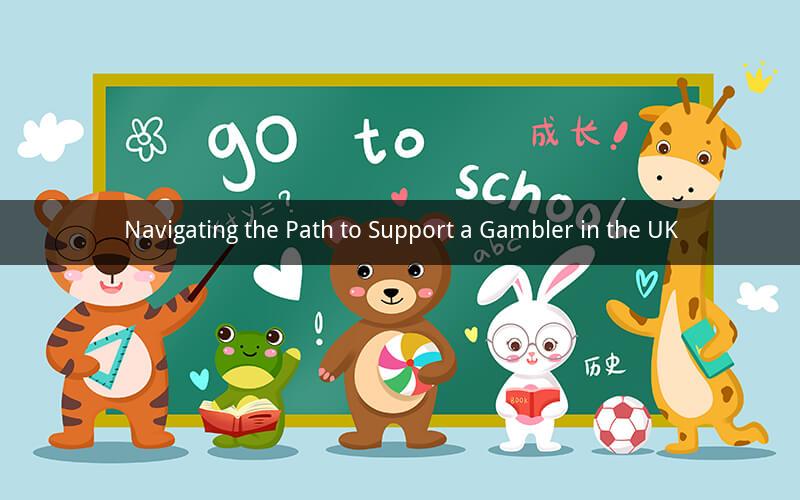
Introduction:
Gaming has become a prevalent form of entertainment, but for some, it can turn into an uncontrollable addiction. If you know someone struggling with gambling in the UK, it's essential to understand how to offer assistance. This article explores various strategies and resources to help a gambler in the UK.
1. Recognise the Problem:
Identifying a gambling problem is the first step in offering support. Look out for signs such as secret betting, lying about spending habits, neglecting responsibilities, and financial difficulties. It's crucial to approach the situation with empathy and understanding.
2. Encourage Open Communication:
Create a safe and non-judgmental environment for the gambler to express their feelings and concerns. Encourage them to share their struggles without fear of criticism or punishment. Active listening and showing compassion can make a significant difference in their journey towards recovery.
3. Suggest Professional Help:
Recovery from gambling addiction often requires professional intervention. Encourage the gambler to seek help from a therapist, counselor, or support group specializing in gambling disorders. These professionals can provide tailored guidance and support throughout the recovery process.
4. Financial Support:
Financial problems are often a major concern for gamblers. Help the individual manage their finances by creating a budget, monitoring their spending, and seeking financial counseling if needed. Consider offering to assist them in seeking debt counseling or organizing a repayment plan.
5. Educate Yourself:
Educate yourself about gambling addiction to better understand the challenges faced by the gambler. Learning about the signs, triggers, and treatment options can empower you to offer informed support. Resources such as GamCare, Gamblers Anonymous, and the National Problem Gambling Clinic can provide valuable information.
6. Encourage Self-Reflection:
Encourage the gambler to reflect on their gambling behavior and the consequences it has had on their life. This process can help them recognize the need for change and develop a plan for recovery. Encourage them to set realistic goals and celebrate small victories along the way.
7. Support a Sober Environment:
Encourage the gambler to avoid triggers that may lead to relapse, such as visiting casinos or engaging in activities associated with gambling. Support them in creating a healthy and supportive environment that promotes recovery.
8. Encourage Alternative Activities:
Encourage the gambler to explore alternative activities that can fill the void left by gambling. Engaging in hobbies, exercise, and socializing with non-gambling friends can provide a healthier outlet for their time and energy.
9. Maintain Patience and Encouragement:
Recovery from gambling addiction is a long and challenging process. Be patient and supportive, even when progress seems slow. Celebrate milestones and remind the individual of their strength and determination.
10. Utilize Online Resources:
The internet offers numerous resources for both gamblers and their loved ones. Encourage the individual to explore online support groups, forums, and educational websites. Online counseling and coaching services can also provide valuable assistance.
FAQs:
Q1: Can I force someone to seek help for their gambling addiction?
A1: No, you cannot force someone to seek help. Encourage and support them, but ultimately, they must recognize their problem and take responsibility for their actions.
Q2: Will seeking help for gambling addiction harm my relationship with the gambler?
A2: Not necessarily. By offering support and understanding, you can strengthen your relationship with the gambler. However, it's important to set boundaries and maintain your own well-being throughout the process.
Q3: How can I help a friend who is in debt due to gambling?
A3: Encourage your friend to seek financial counseling and support them in managing their debt. Offer to assist them in creating a budget, monitoring their spending, and exploring repayment options.
Q4: Is it normal for a gambler to experience mood swings during recovery?
A4: Yes, mood swings are common during recovery from gambling addiction. Encourage the individual to express their emotions and seek professional help if needed.
Q5: How long does it take to recover from a gambling addiction?
A5: Recovery from gambling addiction varies from person to person. Some may experience immediate improvement, while others may require ongoing support and treatment for several years. Encourage the individual to be patient and persistent in their efforts to overcome their addiction.